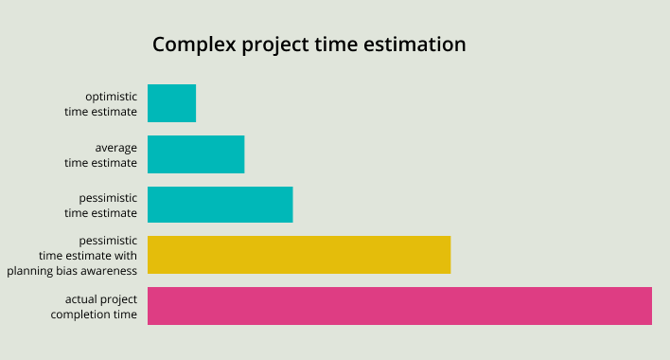UX Design
5d
0

Image Credit: UX Design
Estimating time for complex projects
- Estimating time for complex projects can be challenging due to pitfalls like optimism bias and planning fallacy.
- Hofstadter's law emphasizes that tasks often take longer than expected, contributing to the difficulty of accurate time estimation.
- The optimism bias leads to overestimating favorable outcomes and underestimating resources required for projects.
- The planning fallacy, introduced by Kahneman and Tversky, describes the tendency to underestimate necessary resources in project planning.
- Strategies like the 2x + 15 rule and Hofstadter multiplier can help improve time estimation for smaller tasks.
- Complex projects require additional considerations such as clarifying the level of detail in proposals and involving relevant expertise.
- Mitigating the planning fallacy can involve using real data from past projects or involving third parties for estimates.
- Involving experienced individuals or relying on actual hours from similar projects can simplify and speed up the estimation process.
- For detailed proposals, applying specific methodologies and considering variations is crucial to accurate estimation.
- Consulting with external teams and benchmarking work can help refine estimates and create a competitive environment for project estimation.
Read Full Article
Like
For uninterrupted reading, download the app